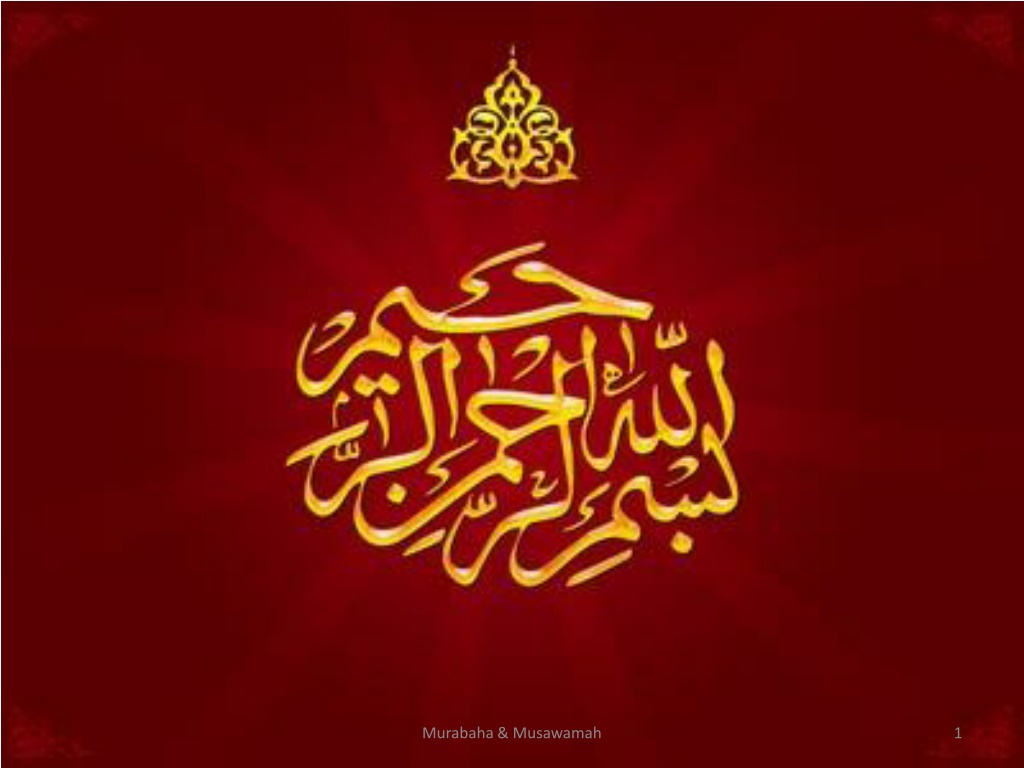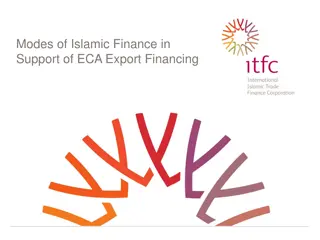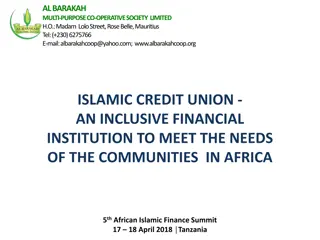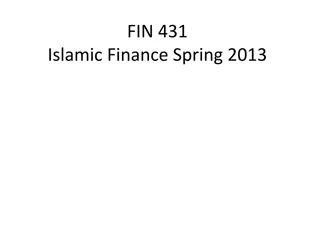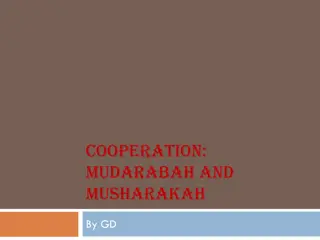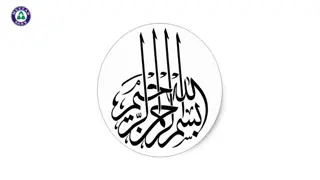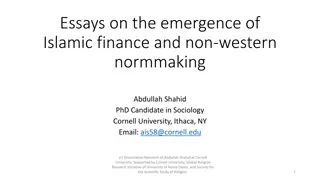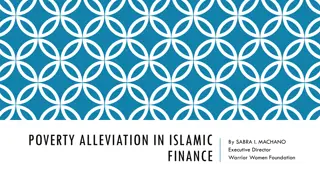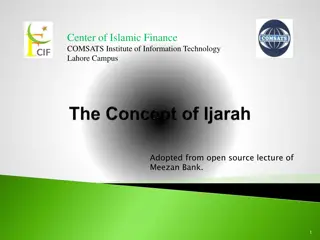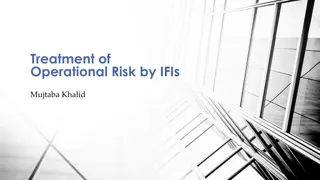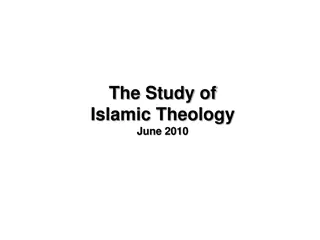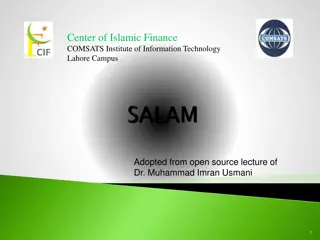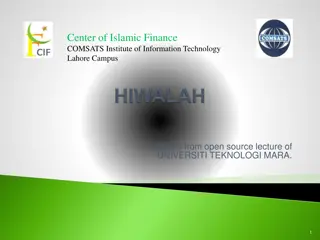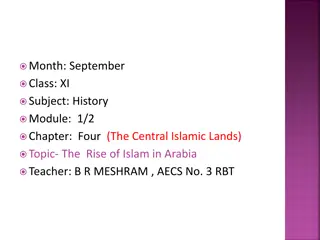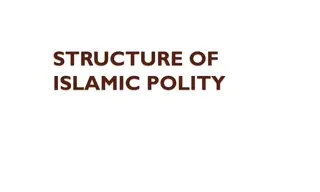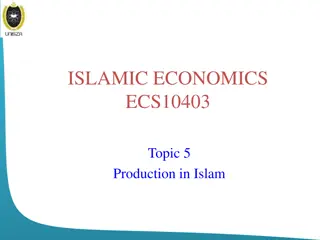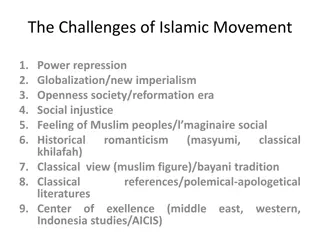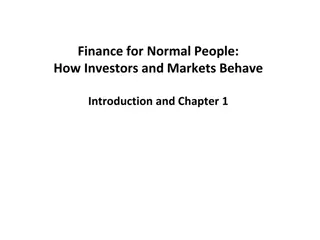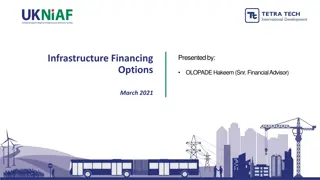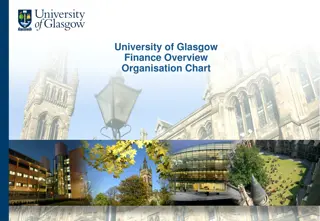Understanding Murabaha and Musawamah in Islamic Finance
Musawamah is a type of sale where the price is negotiated between the seller and buyer without disclosing the seller's cost. It differs from Murabaha where pricing formula is known. Islamic financial institutions use Musawamah for cash or credit sales, adding profit margin without disclosing cost details to clients. It is suitable when sellers can't determine exact costs. Musawamah allows for bargaining on price, beneficial for situations like retail discounts where actual profit is not revealed to customers.
Download Presentation

Please find below an Image/Link to download the presentation.
The content on the website is provided AS IS for your information and personal use only. It may not be sold, licensed, or shared on other websites without obtaining consent from the author. Download presentation by click this link. If you encounter any issues during the download, it is possible that the publisher has removed the file from their server.
E N D
Presentation Transcript
Murabaha & Musawamah LECTURE By Dr. Syed Zulfiqar Ali Shah Murabaha & Musawamah 2
Summary of Last Lecture Murabaha To Purchase Orderer (MPO) Issues in Murabaha Precautions in Murabaha Operations 3 Murabaha & Musawamah
Layout Musawamah (Bargaining on Price) Summary 4 Murabaha & Musawamah
MUSAWAMAH (BARGAINING ON PRICE) Murabaha & Musawamah 5
Musawamah (Bargaining on Price) Musawamah is a general and regular kind of sale in which the price of the commodity to be traded is bargained between the seller and the buyer without any reference to the price paid or cost incurred by the former. Thus, it is different from Murabaha in respect of the pricing formula. Unlike Murabaha, the seller in Musawamah is not obliged to reveal his cost. Both the parties negotiate on the price. All other conditions relevant to Murabaha are valid for Musawamah as well. Musawamah can be used where the seller is not in a position to ascertain precisely the costs of commodities that he is offering to sell. From a juristic point of view, Musawamah can be either cash or credit sale, but when used by banks it will generally be a deferred payment sale in which they will bargain with clients on the price of goods/assets. They will add their profit margin to their cost but will not be required to tell their clients the details of cost price and their profit in any transaction. A few Islamic financial institutions have a 6 Murabaha & Musawamah
Musawamah (Bargaining on Price) Contd a discount from the supplier in the case of retail goods. In such a case, since actual profit is not brought to the notice of the customer, it is necessary that such a sale should be conducted through Musawamah and not Murabaha. 7 Murabaha & Musawamah
Musawamah (Bargaining on Price) Contd 8 Murabaha & Musawamah
Musawamah (Bargaining on Price) Contd 9 Murabaha & Musawamah
Musawamah (Bargaining on Price) Contd 10 Murabaha & Musawamah
Musawamah (Bargaining on Price) Contd 11 Murabaha & Musawamah
Musawamah (Bargaining on Price) Contd 12 Murabaha & Musawamah
Musawamah (Bargaining on Price) Contd 13 Murabaha & Musawamah
Musawamah (Bargaining on Price) Contd 14 Murabaha & Musawamah
Musawamah (Bargaining on Price) Contd 15 Murabaha & Musawamah
Musawamah (Bargaining on Price) Contd 1. Musawamah as a Mode of Financing: Businesses normally use Musawamah, in that they are interested only in profit, which they earn through pricing, while Islamic banks mostly use Murabaha. This is because direct use of any benchmark is relatively easier in Murabaha than in the case of Musawamah. It is easier for the bank management and the regulators to manage the return rate structure in Murabaha. Further, chances of corruption are minimal in Murabaha, because whatever the level of price of the asset, the bank will be charging a profit margin tied up with the cost price of the asset. Musawamah is more suitable for single huge transactions, wherein decisions are made normally at the top level and the price is bargained between the parties. For example, an airline in the Middle East may require credit purchase of an airplane costing about $500 million. An Islamic bank may purchase the airplane for $450 million, for example, and sell it to the airline 16 Murabaha & Musawamah
Musawamah (Bargaining on Price) Contd after adding its profit of $50 million, keeping in mind the credit period and the payment schedule. Details of the cost price to the bank will not be needed and the airline will be interested in the final price only. Similarly, Musawamah could be used in financing of all such purchases where it is not possible for banks to tell a number of minute details, as required in Murabaha. The agency structure can also be used in Musawamah, but it is better and preferable that the bank directly purchases the assets, particularly expensive assets. However, the bank may involve the clients in selection of the supplier and the assets to ensure that the assets being purchased by the bank have all the specifications requested by the client. In the case of assets with a huge price, the structure used by banks will be Musawamah to Purchase Orderer, while in the case of less expensive goods, generally demanded by businesses and the public, banks or their specially created 17 Murabaha & Musawamah
Musawamah (Bargaining on Price) Contd subsidiaries can maintain inventory for sale to the clients on a Musawamah basis as and when demanded by the clients. The conditions of taking ownership, possession and business risk of the asset are equally applicable in Musawamah as in the case of Murabaha. Goods required for onward sale must come under the risk of the bank before execution of the sale contract with the customer. Similarly, all conditions regarding subject matter, payment of the stipulated price and the treatment in case of default, etc. will be the same as in the case of Murabaha. The only difference is that the bank is not required to disclose details about its cost price or profit margin, and bargaining will be on the final price of the goods. 18 Murabaha & Musawamah
SUMMARY Murabaha & Musawamah 19
Summary Musharakah or Mudarabah (PLS modes) may not necessarily be suitable for all the financial needs of modern businesses. In many cases, such modes may neither be feasible nor desired by the banks or their clients. The majority of the traditional as well as the contemporary jurists have, therefore, allowed a number of other modes which facilitate the sale (or purchase) of goods and usufruct of such goods, the corpus of which is not consumed with their use. One such trade-based mode is Murabaha, which takes the form of Murabaha Mu ajjal (cost-plus sale with deferred payment of price) when used by banks. Murabaha refers to a mutually stipulated margin of profit in a sale transaction, where the cost of the commodity is known or made known to the buyer. The parties negotiate the profit margin on cost and not the cost per se. If payment of the sale price is deferred, it also becomes Mu ajjal. The due date of payment of the price must be fixed in an unambiguous way. 20 Murabaha & Musawamah
Summary of Today's Lecture Musawamah (Bargaining on Price) Summary 21 Murabaha & Musawamah
Thank You. 22 Murabaha & Musawamah
